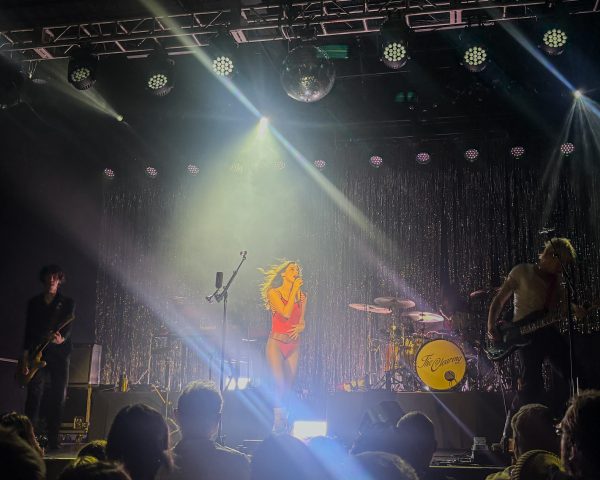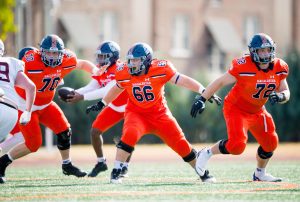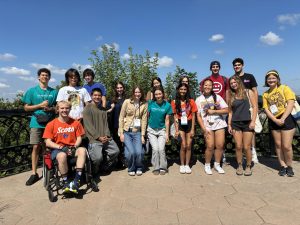A Closer Look at Self-Regulation and Social Justice
April 6, 2020
Macalester students, college campuses and society as a whole often wrestle with questions of social justice, and specifically how we can be better individuals. These discussions often center on how we should treat others. We try to reduce the amount of harm created in social interactions. Though focus on the individual is valuable, discussions have recently shifted towards analyzing micro aggressions, implicit biases and other less easily identifiable forms of discrimination. In many instances the lines between person-to-person interaction and individual action become blurred. This shift requires a new framework. To aid in this shift, I argue that Macalester students, and anyone dedicated to social justice, should begin to focus more on private self-regulation as a tool of progress.
Private self-regulation stems from the idea that we are all individuals that make up social systems. Social theorist Talcott Parsons argues that social systems are created by individuals taking actions that affect others. Each action is referred to as a “unit” that is added to the greater social network, eventually shaping the large social system. However, to truly understand this system we need to understand what those individuals are bringing with them. The ways we act when we are alone, unwatched and in private settings, affect the way we act in public social environments. For example, the suppression of a mental health crisis in private may lead to outbursts in public. This idea can be applied to sociopolitical topics as well. If we are willing to say discriminatory or offensive things to ourselves in private, we will be more willing to excuse that same behavior when it appears in public.
The purpose of my argument is not to debate the semantics or interpretations of discriminatory epithets and offensive language. Arguments over the “meaning” of the n-word or other charged terminology often devolve into subjective interpretations of history. Instead, I want to focus on the benefit of self-regulation in and of itself. An individual making the choice to not tell a homophobic joke, use racially charged language or objectify women is a powerful form of resistance. That restraint and intent demonstrates a willingness to change one’s personal behavior for the benefit of others and the improvement of broader systems. This is especially true for those who are part of privileged groups. When you have the privilege to speak freely and be defended by the majority, it is even more essential that you speak carefully and intentionally.
Much of the most detailed research about self-regulation comes out of child psychology. Psychologist Stuart Sharker advocates that when schools and parents encourage children to regulate themselves, behaviors like stress management and exercise habits are better established in adolescence and adulthood. He also argues this method can create positive feelings towards social justice and democracy at a young age too, writing “[to] create a just society isn’t simply a matter of ‘permitting’ individuals to fulfill themselves. [It] has to be psychologically possible as well as politically possible.” The same concept can be applied to all age groups in a social justice context. Attempts by liberals to regulate slurs, offensive language and conservative talking points have failed time and time again. Years of trying to silence the white lower middle class population of the U.S. backfired enormously when that group became Trump’s base. Those types of methods, trying to regulate and control speech, will only lead to retaliation, stubbornness and worse social behavior. The focus must instead be on changing the minds of those we disagree with, not forcing them to obey vague rules and regulations they will inevitably break.
To avoid becoming lost in abstraction, I want to talk about specific instances of self-regulation. The first is the usage of oppressive language in private. Words like the n-word, misogynistic slurs, homophobic slurs and many others are most harmful when directed at a member of the marginalized group they target. Though they may not inflict harm when spoken outside of that context, socially permitting slurs and discriminatory ideas is damaging in its own way. When the privileged are not willing to sacrifice even a few words to become more aware allies to the oppressed, they ignore the system furthering that oppression. A group of white male friends using and permitting racist and sexist language is an endorsement of apathy contrary to responsible self-regulation. Their use often stems from the ignorance of privilege. Because privileged groups don’t have a history of being discriminated against, slurs created for them fall short and are not charged with historical meaning. Words like “cracker” and “honky” just don’t have the same effect. Group settings where discriminatory language is used are heavily influenced by our independent behavior. Therefore, even regulating oneself when there is no one watching and no one listening, can contribute to a more aware and responsible mindset. This means not singing along to the n-word in a song or mentally rating a woman’s attractiveness when she walks by, among many other actions. To some of you, avoiding this type of behavior may seem obvious. But, as social theorist bell hooks suggests, everyone, even those who may think they don’t, must conduct some level of self-inventory to root out internal microaggressions and attitudes.
Some may ask, if I didn’t do anything to contribute to structures of discrimination, why must I be regulated? Isn’t this a form of censorship? I would first answer no, this is not censorship, because self-regulation only works if someone makes the choice to change for themselves. If an individual doesn’t express sexist ideology in public only out of fear of retribution, they aren’t creating any actual change. Only when people cease to express sexist ideas out of respect for those who may be affected and out of awareness of their own privilege, will we see progress. This also addresses the first question; regulating oneself is a way to fight against these structures of discriminationsel you may or may not contribute to. The focus should not be to what degree you contribute to the problem, but to what degree do you, and can you, fight the influences of the system. The best way to do that is to change your personal and private behavior and then bring that awareness and empathy to the rest of the world.
Though the individual act of self-regulation may seem small, its implications for social progress are momentous. This is not a new or “radical” idea. In fact, self-regulation has been slowly developing throughout all of humanity’s social movements. Every women’s movement, every civil rights movement, every protest for justice has slowly altered the psyche of the oppressed and the privileged. The great strides we’ve seen in our country and around the world towards a more just planet have come from millions of individuals choosing to behave differently around themselves, and around others. We have, in our own minds, shifted our values. This is not to say that the movement for social freedom is nearing completion, far from it. But it means that self-regulation has been, and can continue to be, the key to social justice. Every Macalester student and every person interested in making a better world must start with themselves and their own private thoughts. Through this slow, internal change we can make our campus — and our global community — a safer and more accepting place.











